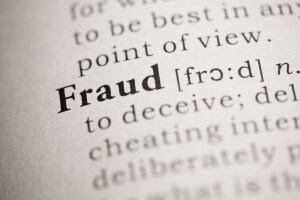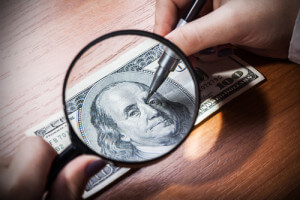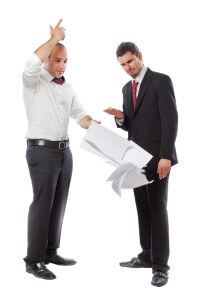Like everyone else, a basketball player is not immune to state and federal laws. Especially when it comes to driving under the influence.
Fans and players alike are anxiously waiting for the 2016 season to start up in October. While they wait, they typical basketball player is relaxing with their families or getting into shape. Unfortunately, other players find themselves on the wrong side of law enforcement .
Basketball Player Caught Drinking and Driving
Ty Lawson, of the Denver Nuggets, was with his girlfriend Ashley King at the Jardin nightclub in Hollywood this week. TMZ, the celebrity news website that first reported the arrest, encountered Lawson outside the club. When they saw him, it was shortly before he got into his Mercedes-Benz and hit the road. For Lawson, he was unaware he was about to run into some complications on his ride home.
At about 1:30 in the morning, a California Highway Patrol (CHP) officer noticed a white Mercedes driving on the 101 freeway at a high rate of speed. The officer pulled the car over, and the driver identified himself as a professional basketball player for the Denver Nuggets. However, Lawson was not just speeding. CHP officer Kevin Tao told the Denver Post that Lawson also “displayed several signs of symptoms of alcohol intoxication.”
Lawson reportedly failed field sobriety tests administered by the CHP officers, and based on that and displayed symptoms of alcohol intoxication, he was arrested and booked into a Los Angeles Police Department jail.
Repercussions of a DUI
At last report, Lawson was still in jail in lieu of $5,000 bail. However, the bail amount shouldn’t be much of an issue for the point guard. He is currently under a 4 year, $48 million contract with the Denver Nuggets. He was even carrying $6,000 in cash at the time of his arrest.
California hasn’t been too welcoming to Lawson. Before his Los Angeles DUI, the Golden State Warriors eliminated the Denver Nuggets in the first round of playoffs, despite Lawson leading Denver in both scoring and assists.
This is not Ty Lawson’s first run-in with the law. Only six months ago, Lawson was arrested for driving under the influence in Denver. The police pulled him over for driving 61 mph in a 35 mph zone. The arresting officer reported slurred speech, bloodshot eyes, swaying, and stumbling. Additionally, he notes an odor of alcohol on his breath. Lawson refused a chemical breath test, and the police took him into custody.
Charges to Settle
The Denver DUI charges are not yet resolved, as he is due in court on that charge later this week. The conditions of his bond on that arrest include no consumption of alcohol and monitored sobriety. This latest DUI arrest will probably not do much to help his case before the Colorado judge and prosecutors.
During Lawson’s college basketball days at the University of North Carolina in 2008, he plead guilty to underage driving after consuming alcohol. His blood alcohol concentration (BAC) estimation was only 0.03%, but that level was still a violation because he was under the legal age to drink.
The David Kavinoky Law Firm staffs the best attorneys in Los Angeles. Should you find yourself on in need of legal defense, give us a call right away. I you need the best DUI lawyer you can find, then 1.800.NO.CUFFS is the number you want to know and hope you never need. Call us anytime, 24/7, 365 days a week



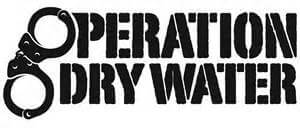
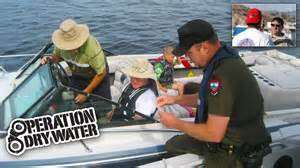 Operation Dry Water launched in 2009 by the
Operation Dry Water launched in 2009 by the 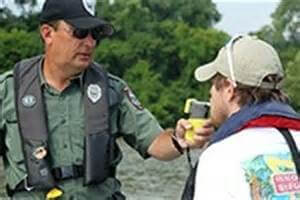 all clear: it is illegal to Boat Under the Influence. The
all clear: it is illegal to Boat Under the Influence. The 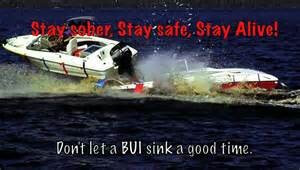 DUI and BUI cases are similar in prosecution. Additionally, while the penalties vary, it is only a slight variation. Under the BUI laws, you can still face fines, possible jail time and alcohol education classes. The one distinction is in the length of time priors can be used to enhance your sentence. Instead of the priorability time being ten years, as in DUI cases, priors only enhance a BUI when the DUI or BUI was committed within the last seven years prior to the offense.
DUI and BUI cases are similar in prosecution. Additionally, while the penalties vary, it is only a slight variation. Under the BUI laws, you can still face fines, possible jail time and alcohol education classes. The one distinction is in the length of time priors can be used to enhance your sentence. Instead of the priorability time being ten years, as in DUI cases, priors only enhance a BUI when the DUI or BUI was committed within the last seven years prior to the offense. There are many confusing variables involved in this type of case. Even a seasoned law enforcement officer may mistake light drinking for violation of boating under the influence laws (BUI). Your case may have some of these conditions, or any of the many others that lead to unwarranted BUI arrests. You could find yourself in a position of too much fun in the sun or wrongfully facing BUI charges. If so, you should consult with a
There are many confusing variables involved in this type of case. Even a seasoned law enforcement officer may mistake light drinking for violation of boating under the influence laws (BUI). Your case may have some of these conditions, or any of the many others that lead to unwarranted BUI arrests. You could find yourself in a position of too much fun in the sun or wrongfully facing BUI charges. If so, you should consult with a 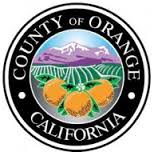
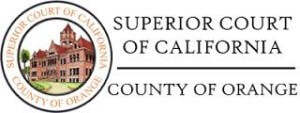
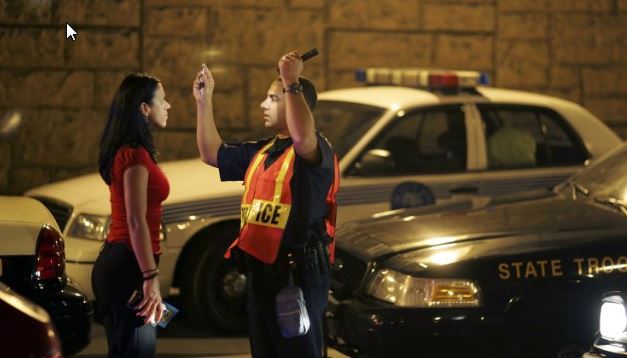
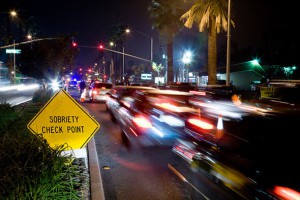 We are approaching summer and with the change in seasons to warmer weather, local law enforcement steps up DUI enforcement. This is especially true with checkpoints across Southern California.
We are approaching summer and with the change in seasons to warmer weather, local law enforcement steps up DUI enforcement. This is especially true with checkpoints across Southern California.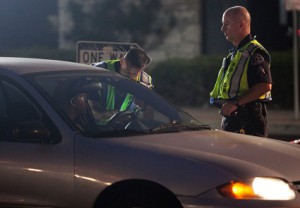 The first thing you should do in this situation is open your window slightly and wait for the law enforcement agent to ask you any questions. As with any routine stop, you are required to provide identifying information such as your name, address, driver’s license and registration. As a general rule, it’s good to have these things organized in advance.
The first thing you should do in this situation is open your window slightly and wait for the law enforcement agent to ask you any questions. As with any routine stop, you are required to provide identifying information such as your name, address, driver’s license and registration. As a general rule, it’s good to have these things organized in advance.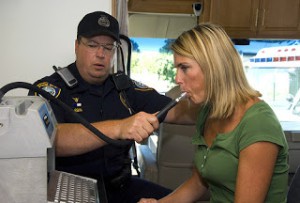 Many agencies use a portable breath test to determine the drivers’ blood alcohol content (BAC) levels. This is called a Preliminary Alcohol Screening Test (PAS). Even though it is a chemical test, it is legally considered to be a Field Sobriety Test. If you are over 21 and are not on probation for a previous DUI, this test is optional. In fact, before the officer administers a PAS test, they must read an admonition to you stating that the test is not mandatory. Because the technology shortcomings of the PAS machine make is susceptible to giving readings that are inaccurate and overly state true alcohol levels, if you’ve had any alcohol at all, especially recent consumption of alcohol, it is best NOT to take this test.
Many agencies use a portable breath test to determine the drivers’ blood alcohol content (BAC) levels. This is called a Preliminary Alcohol Screening Test (PAS). Even though it is a chemical test, it is legally considered to be a Field Sobriety Test. If you are over 21 and are not on probation for a previous DUI, this test is optional. In fact, before the officer administers a PAS test, they must read an admonition to you stating that the test is not mandatory. Because the technology shortcomings of the PAS machine make is susceptible to giving readings that are inaccurate and overly state true alcohol levels, if you’ve had any alcohol at all, especially recent consumption of alcohol, it is best NOT to take this test.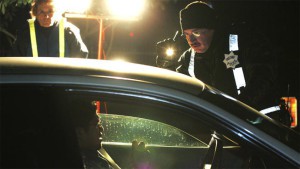 When conducting sobriety checkpoints, police must follow strict guidelines outlined by the U.S. Supreme Court in the landmark case Ingersoll vs. Palmer. If police do not follow the criteria from Ingersoll, the DUI roadblock isn’t lawful. Additionally, any evidence gathered during a drunk driving arrest is possibly not admissible in court.
When conducting sobriety checkpoints, police must follow strict guidelines outlined by the U.S. Supreme Court in the landmark case Ingersoll vs. Palmer. If police do not follow the criteria from Ingersoll, the DUI roadblock isn’t lawful. Additionally, any evidence gathered during a drunk driving arrest is possibly not admissible in court.
